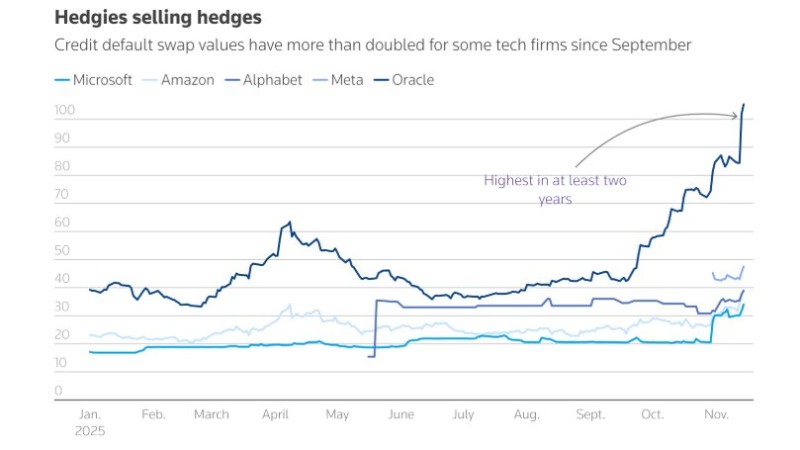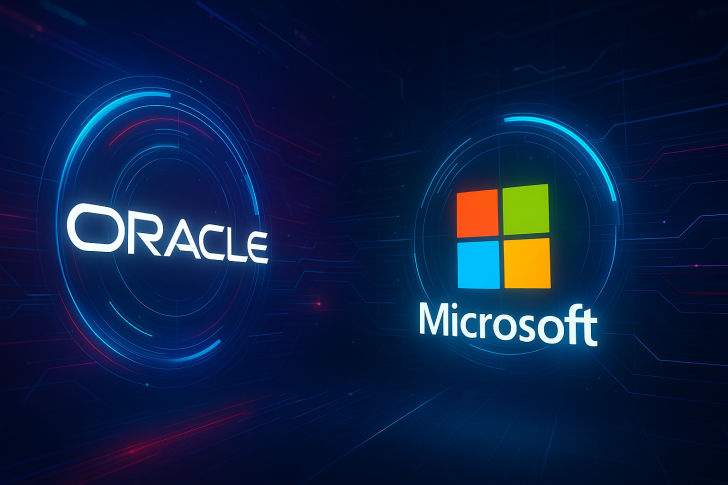⬤ Credit default swaps for major U.S. tech giants like Oracle (ORCL), Microsoft (MSFT), Meta (META), Amazon (AMZN), and Alphabet (GOOGL) have shot up sharply in recent months. The spike comes as Boaz Weinstein's Saba Capital has been selling CDS protection on these companies to banks and lenders trying to hedge growing credit risks tied to massive AI investments. Microsoft's CDS spreads have returned to levels not seen in over two years, with the chart showing a dramatic acceleration.

⬤ Microsoft's CDS values have climbed steeply since September, rocketing from the mid-30s to nearly 100 by November. That makes MSFT the clear standout in terms of spread widening. Oracle, Amazon, Alphabet, and Meta sit lower on the chart but have also ticked upward. CDS pricing is increasingly sensitive to worries about the capital-heavy nature of AI infrastructure, cloud expansion, and the long-term financing tech companies need to fund data-center growth.
⬤ The CDS surge also shows banks are rushing to hedge their AI-related credit exposure. Spreads stayed pretty stable through the first half of the year before spiking in autumn. Banks and private lenders are using derivatives to protect against potential stress in portfolios connected to cloud services, AI hardware purchases, and enterprise software expansion. Saba's move to sell protection suggests hedge funds see current spread levels as attractive compared to actual risk, while lenders keep securing insurance against potential volatility in AI investment cycles.
⬤ Rising credit protection costs for ORCL, MSFT, META, AMZN, and GOOGL reveal growing caution in credit markets toward the sector that's been driving U.S. equity gains. If CDS values keep climbing, it could affect borrowing costs, corporate financing conditions, and overall market sentiment around tech companies with heavy AI capital spending plans.
 Peter Smith
Peter Smith

 Peter Smith
Peter Smith


